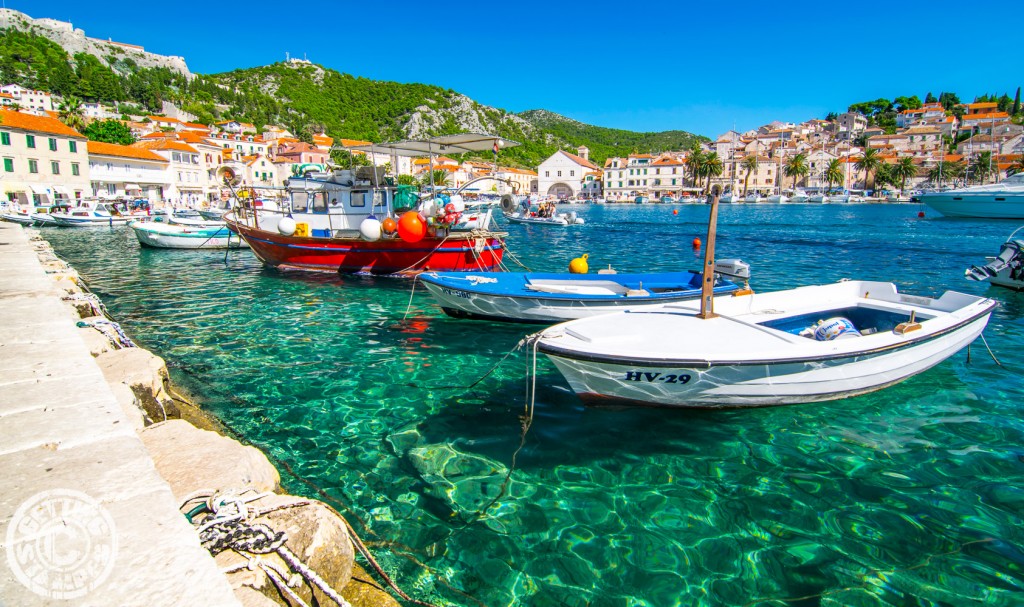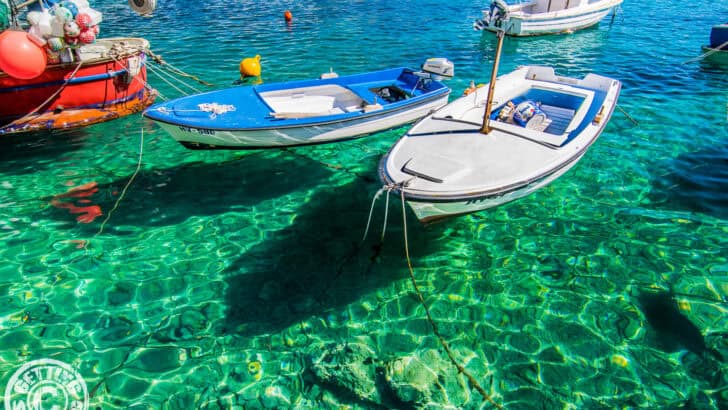What better way to see the Dalmatian coast then on by a Croatia sailing tour? Our 8-day cruise has us visiting 8 destinations over the span of the trip. Our first sight of our new home for the week began with welcome drinks & snacks in the lounge area, before checking into our cabin.
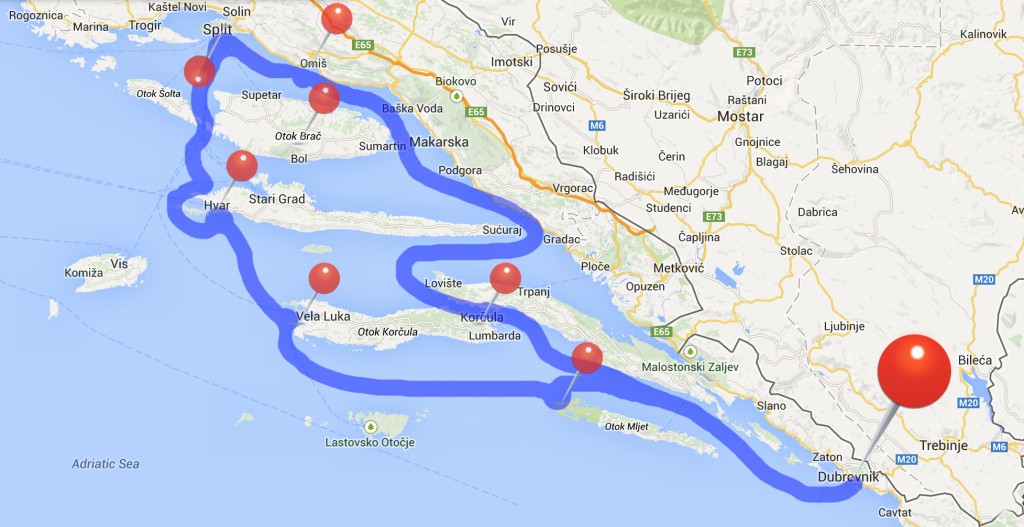
During the week long Sailing tour of Croatia we pulled into the ports for afternoon activities and time to explore local beaches & towns. Some days we will cruise an hour so in the afternoon before docking for the evenings. This is great not to sail overnight, much better sleep than rocking with the waves while you’re trying to sleep. Plus gives Adam and I the chance to go out and have a late night drink & ice cream cone before calling it a night.
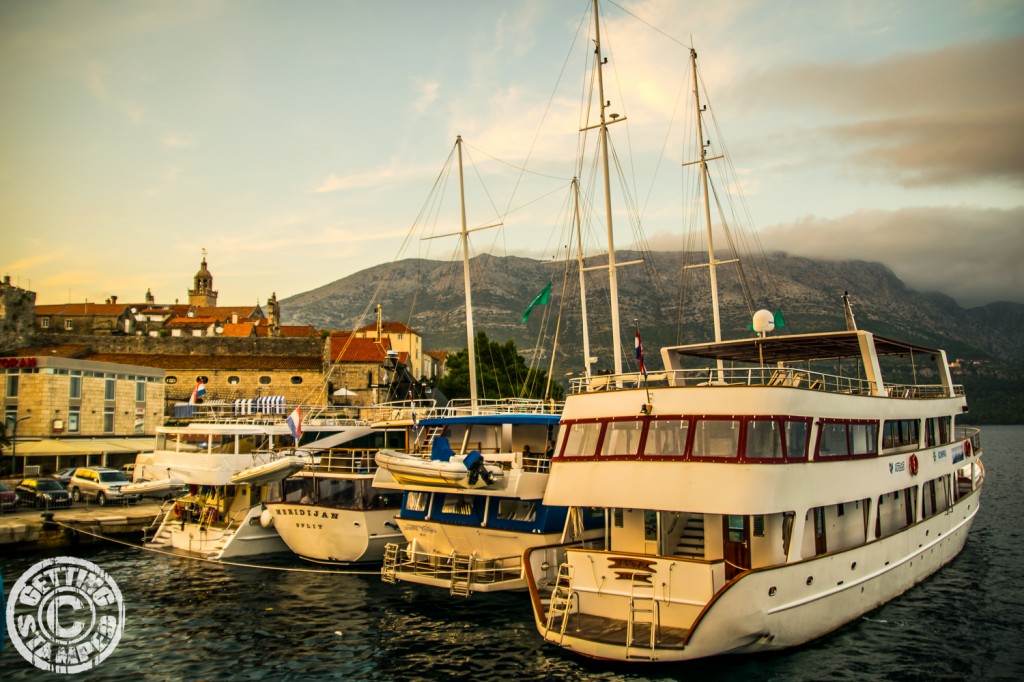
Our first day we head to Korcula where we had a town tour to hear the storied past of the city. In ancient history, the city of Korcula was under control of Venice for many years. Throughout the city, you can see Venetian architecture and buildings that hold the winged lion emblems of Venice. The city also claims to be the owner of the famous explorer Marco Polo. While history shows he did live in the city for part of his life the argument of who Marco Polo belongs to is still alive. However, the city is surely the owner of beautiful limestone streets filled with cafes and restaurants. It may be small in size, but Korcula holds a historic charm in all of the white stone buildings.
Throughout the ages and many empires controlling the city, the walls have withstood the test of time. Of all the wars the city has lived through, only one came close to destroying it, World War II. The town was set to be leveled by order of the allies, as it was a known hideaway for Nazi leaders. However, the order came down of a division of bombers to crush the beautiful stone town to an English commander. As the squadron flew over the island the commander called it off and chose to ignore the order saying the city was too beautiful to destroy. After the war, Yugoslavia formed and it was illegal for a foreigner to own land within the region, but they made one exception for the English commander who spared the city of Korcula. The family of the pilot still own the house on the island and visit regularly.
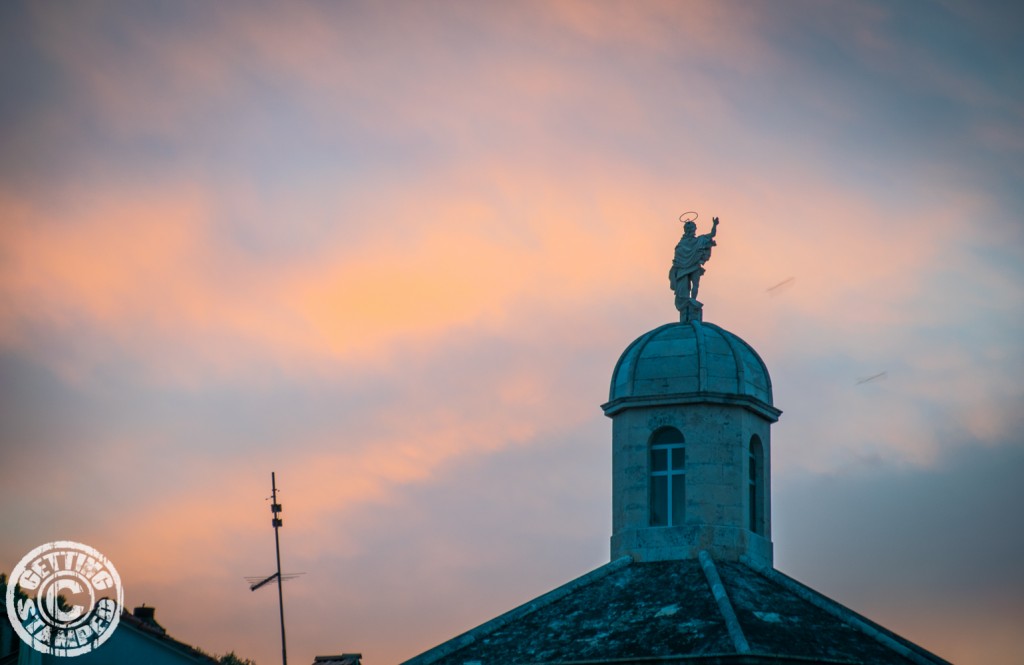
After the tour we were on our own, so you guessed it off on a gelato hunt we went. We grabbed a beer and sat on the stone wall overlooking the sea before heading back aboard the Adriatic Pearl. This cruise is different than our Galapagos trip as it has WiFi on board, so while we a cruising during the day we can work on the blog, or call mom if we need.
Exploring Split, Croatia | Surprisingly Ancient History
In the morning of our second day of cruising the captain pointed the Adriatic Pearl toward the city of Omis on mainland Croatia. Along the way we stopped on the island of Pucisca to visit the quite little village and learn about the islands century old traditions. The resting point of our ship tonight would be the town of Omis, set along the shores of the sea with large limestone cliff behind.
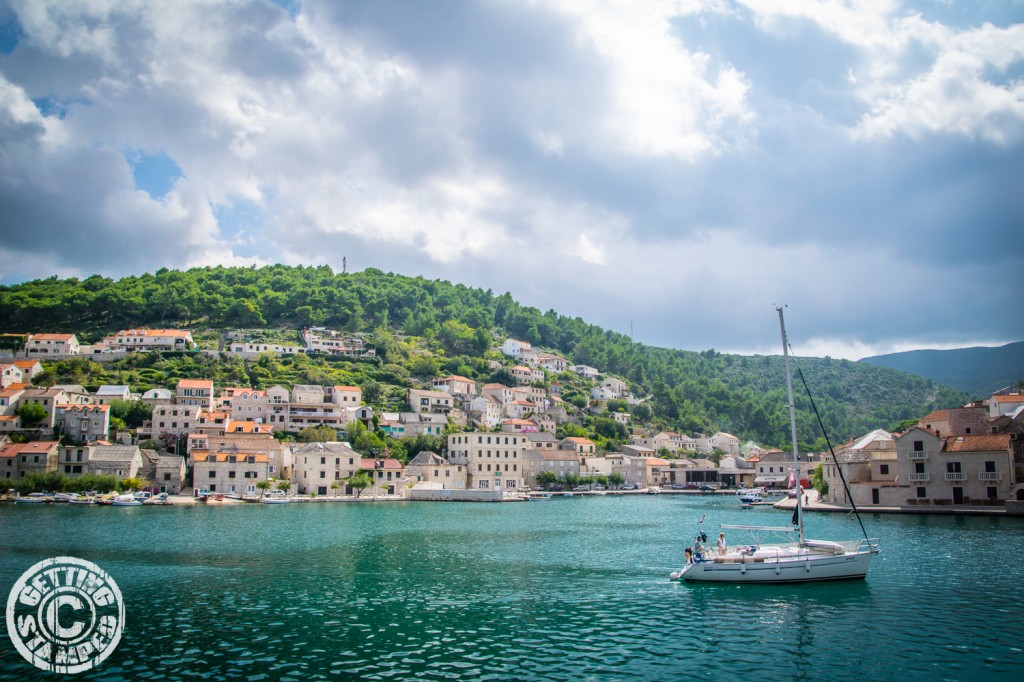
The city of Pucisca is located on the island of Brac one of the closer islands to Split and Omis, making it a logical stop over on our way to Omis. We entered the quite bay of Pucisca where a few sail boats floating by was the only traffic in the small town. The bay opened up to reveal bright white houses with orange roofs. Homes surrounded the bay and started to spill up the sides of the hills. We had a few hours to ourselves which will filled with purposely getting lost, exploring the quaint seaside town. We visited on a Sunday which likely contributed to the quietness, but come Monday the town comes to life with the sounds that have been heard here for thousands of years.
Pucisca is home to a unique school training young men (and a few woman) in the art of becoming a stone mason. The Dalmatian islands are quite literally surrounded with bright white limestone. All of the cities buildings are made from this stone. The color of the rock is what give the waters the bright blues and greens. The limestone is part of what makes Dalmatia what it is. We are shown around the school and workshop by one of the instructors. He shows us the tools his students use to learn the centuries-old craft. He explains to us that the first few years of the school not much has changed since Roman times. The students learn to hammer and chisel the exact same way people 2,000 years ago did. After completing the school the students are qualified to work as stone masons and typically work in restoration projects around the country and abroad. After school was out for us it was time to make the last leg of the day’s journey to the city of Omis.
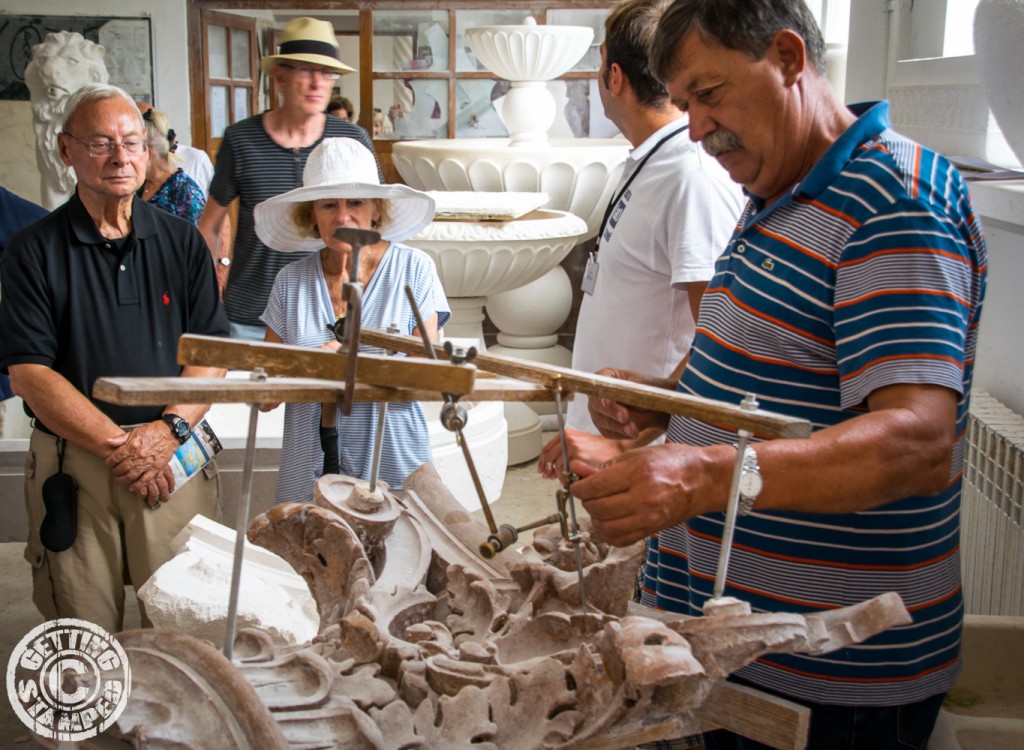
Just a few hours away from Pucisca is one of the most dramatic city landscapes in Croatia. Omis was built in the shadows of towering limestone cliffs along the seashore. The large peaks toward the center of the city are divided by a river that cuts through both the town and the rocks. Looking at the cliffs I couldn’t help but compare them to Table Mountain in South Africa in a way. They seem to come straight out of the ground and reach several hundred feet. Perched high on top one of the peaks was a fortress dating back to more troubled times.
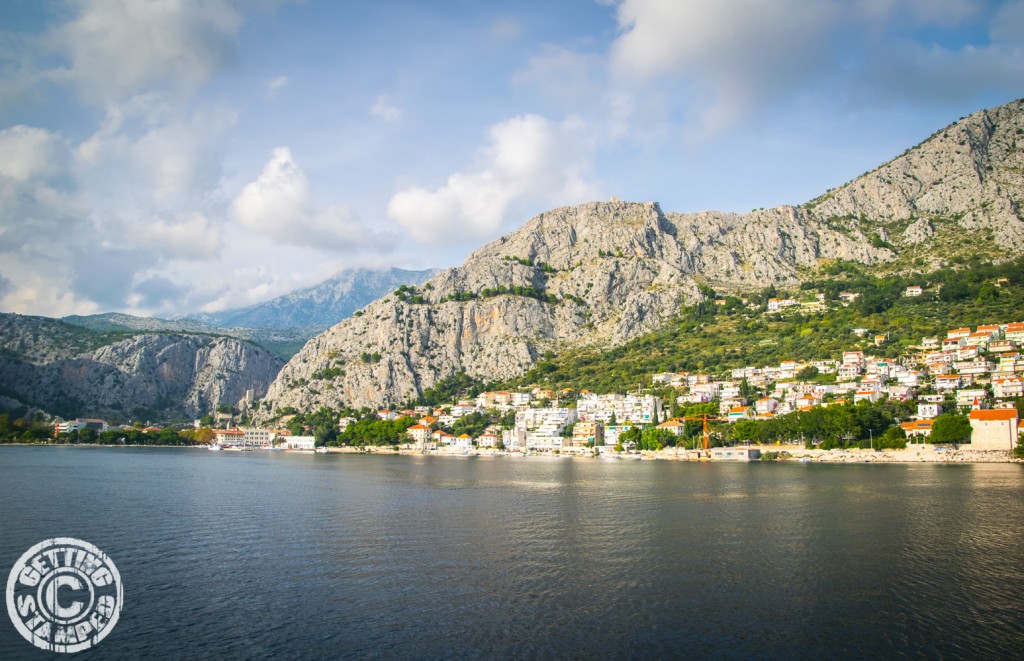
The cliffs have great vantage points and the people that lived here during the middle ages knew that and built forts and guard towers high above the city. The forts were made of none other than the limestone the area is famous for. With our time on shore we climbed up to the tower in the center of the city. It was no wonder why it was placed where it was, from up there we had great views of the city and the bay. A few hundred steps and 15 Kuna ($2.75~) to reach the top was worth the view. The views of Omis didn’t stop there, they kept right on until the sun was setting.
Watching the sun sink into the sea from the top deck of our cruise ship was the perfect way to finish a day at sea. After dark Omis had a nice selection of restaurants and bars. For being part of the mainland it still seemed to have a small town or even an island feel to it. After a bit of night time exploring it was time to head back to the ship because the next day we were are off to Split.
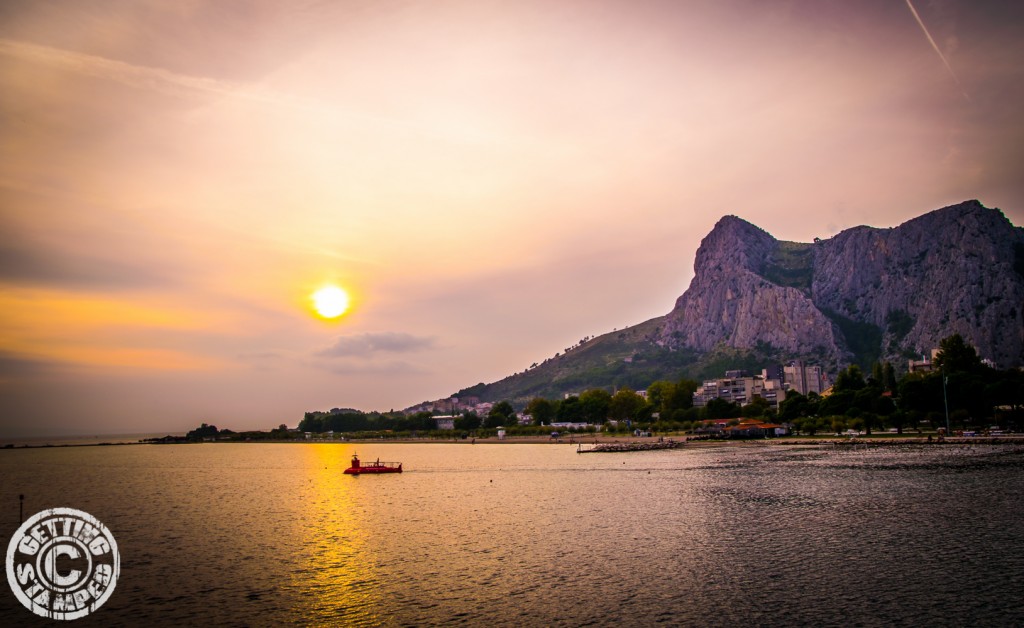
Day 3: Omis
The morning of day 3 on our Croatian cruise was left open for us to explore Omis before we started cruising towards Split. Adam and I noticed a guard tower in the old town, so off we went to get to the top. After following the signs and climbing a few steps we paid our 15 kuna fee ($2.50) and started our 10-minute climb to the top. The climb consisted of stone steps, wooden steps, and a steel ladder. Once at the top it was only us and 4 other tourists.
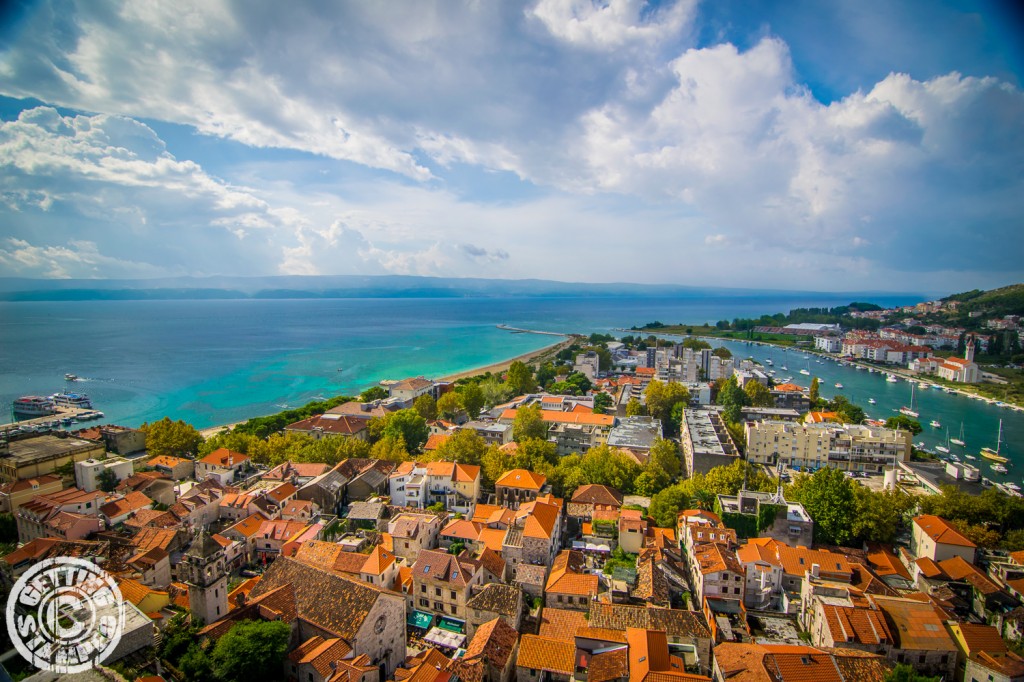 After taking our time up at the top of the tower we headed back into the old town to grab a snack before we made our journey to Split.
After taking our time up at the top of the tower we headed back into the old town to grab a snack before we made our journey to Split. 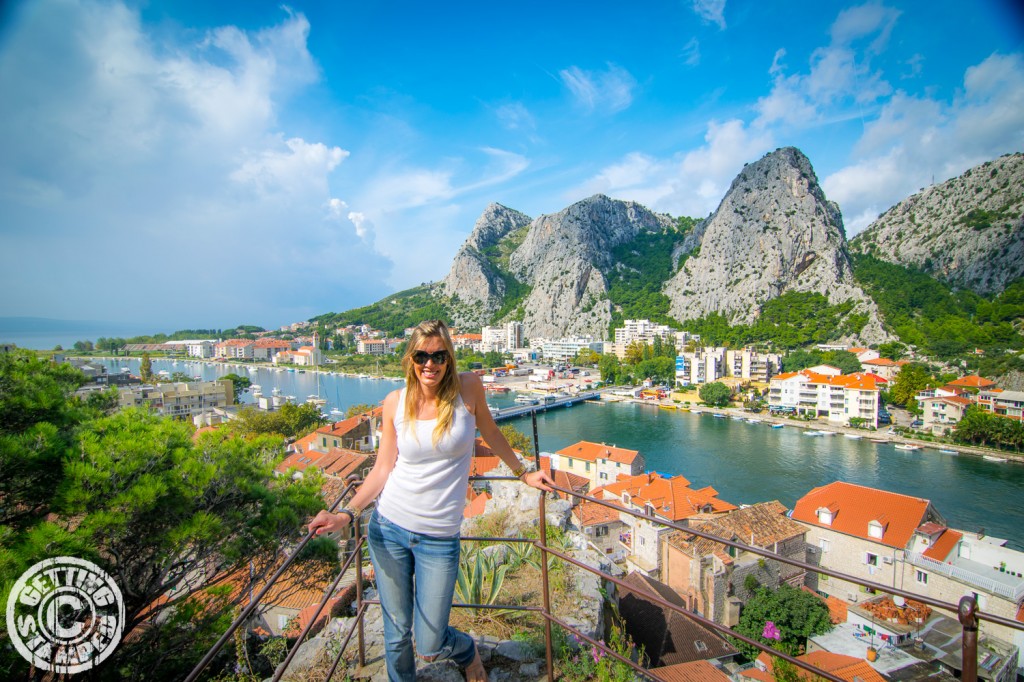 A few hours of sailing was a great chance for me to catch up on some magazines on the top sun deck in my bikini. Why not get a tan and read at the same time. Before you know it we had arrived into Split, which is the 2nd largest city in Croatia. The city of split dates back to Roman times. Its first inhabitants were the retired Roman emperor Diocletian and his entourage. He built himself a walled city for a retirement palace, taking up a few acres of seafront property 200 hundred odd kilometers north of Dubrovnik. Inside his massive palace lived 500 servants and guards, it was a city of people just for him. You may ask yourself why does one guy need all of that staff and security? Well, he wasn’t the most popular guy. He was the Roman emperor known for his persecution of the Christians.
A few hours of sailing was a great chance for me to catch up on some magazines on the top sun deck in my bikini. Why not get a tan and read at the same time. Before you know it we had arrived into Split, which is the 2nd largest city in Croatia. The city of split dates back to Roman times. Its first inhabitants were the retired Roman emperor Diocletian and his entourage. He built himself a walled city for a retirement palace, taking up a few acres of seafront property 200 hundred odd kilometers north of Dubrovnik. Inside his massive palace lived 500 servants and guards, it was a city of people just for him. You may ask yourself why does one guy need all of that staff and security? Well, he wasn’t the most popular guy. He was the Roman emperor known for his persecution of the Christians.
Diocletian built the palace as a place to live out the rest of his years, something uncommon for those times. Roman emperors would usually die in command, but he had a slightly more luxurious plan. After the palace’s construction, the retired emperor spent his remaining days there, and was eventually buried there. However, he didn’t stay there for long. Relatively soon after his passing, the city of Split was born. Christians who he had tortured and enslaved soon came to squat in his palace. After a time the Christians living in the palace-turned-city evicted the remains of the emperor and turned his mausoleum into a church. The church still stands today and is now one of the oldest churches still in existence. The city of Split and Croatia itself for that matter had way more history and interest than I expected.
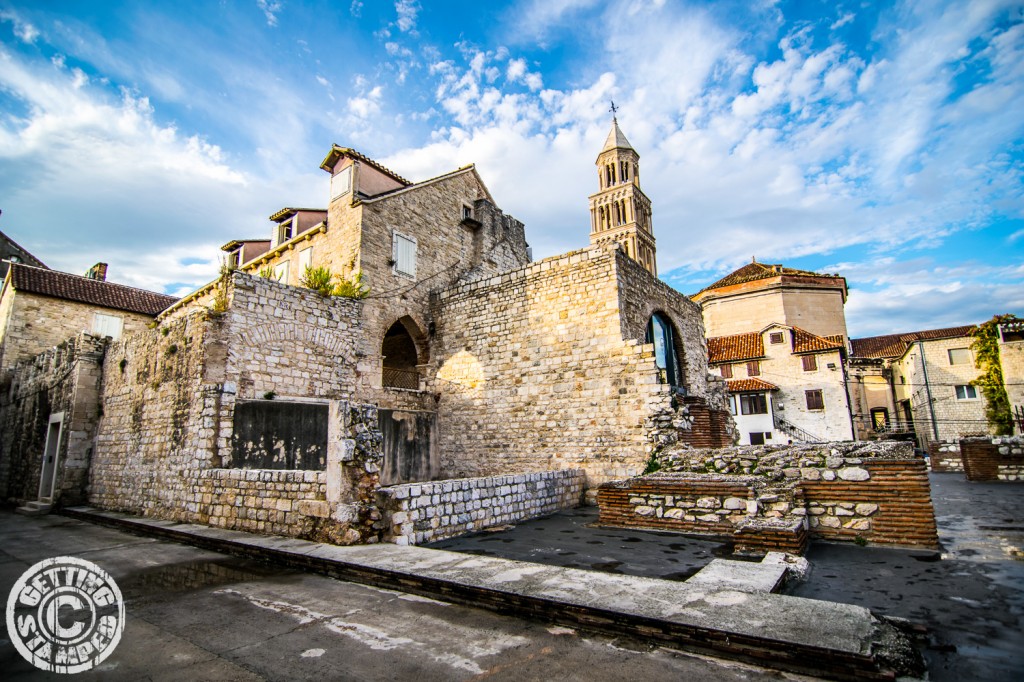 After our tour of the historic Split, we returned to our ship the Adriatic Pearl. After dinner, we had the night free to get lost in the old town. I noticed everyone on the ship flew out after dinner because they wanted to do some shopping, grab a drink, or dessert. Adam and strolled around until 11 pm, just as the rain began to fall. We got back to the boat just in time, a few minutes later hail began to fall and the thunder rolled in. Perfect sleeping weather, off to bed and ready for day 4.
After our tour of the historic Split, we returned to our ship the Adriatic Pearl. After dinner, we had the night free to get lost in the old town. I noticed everyone on the ship flew out after dinner because they wanted to do some shopping, grab a drink, or dessert. Adam and strolled around until 11 pm, just as the rain began to fall. We got back to the boat just in time, a few minutes later hail began to fall and the thunder rolled in. Perfect sleeping weather, off to bed and ready for day 4. 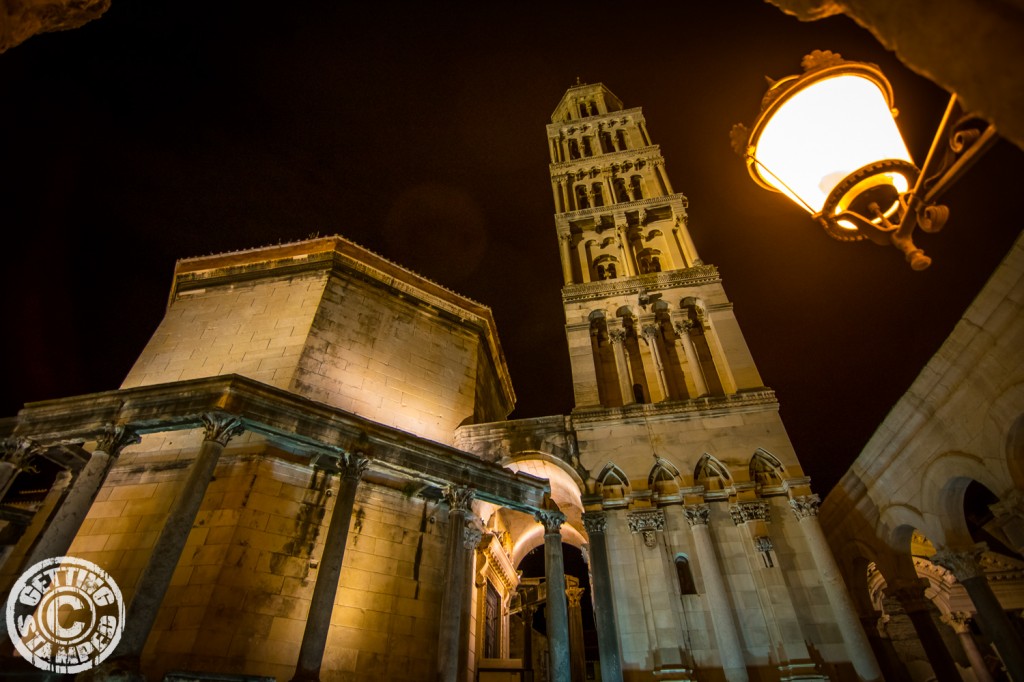
Visiting the Island of Mljet, Croatia
The island of Mljet off of Croatia’s southern coast is home to a national park and two pristine salt water lakes Veliko & Malo Jerzero which translates to large & small lake. We spent day 5 of our cruise of the Dalmatians on our Croatian cruise exploring the national park and island.
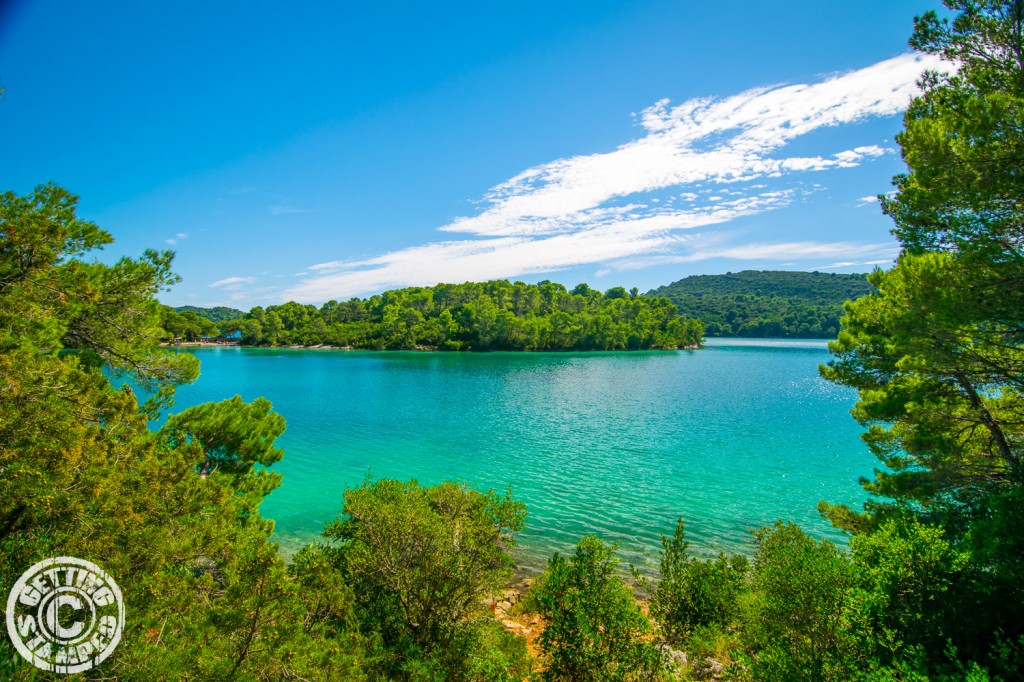
The highlight of the park was the two lakes. A short walk from where the Adriatic Pearl docked we arrived at the smaller of the two lakes. What makes the lake special is the rock that forms the island, which is the bright white Dalmatian limestone. When the sun hits the water it reflects off the light colored bottom and the true colors of the water shows. Bright blues and green fringe the edge giving way to deeper blues as the lake deepens. Another 10 minutes of walking gets you to the bridge leading to the second and larger lake.
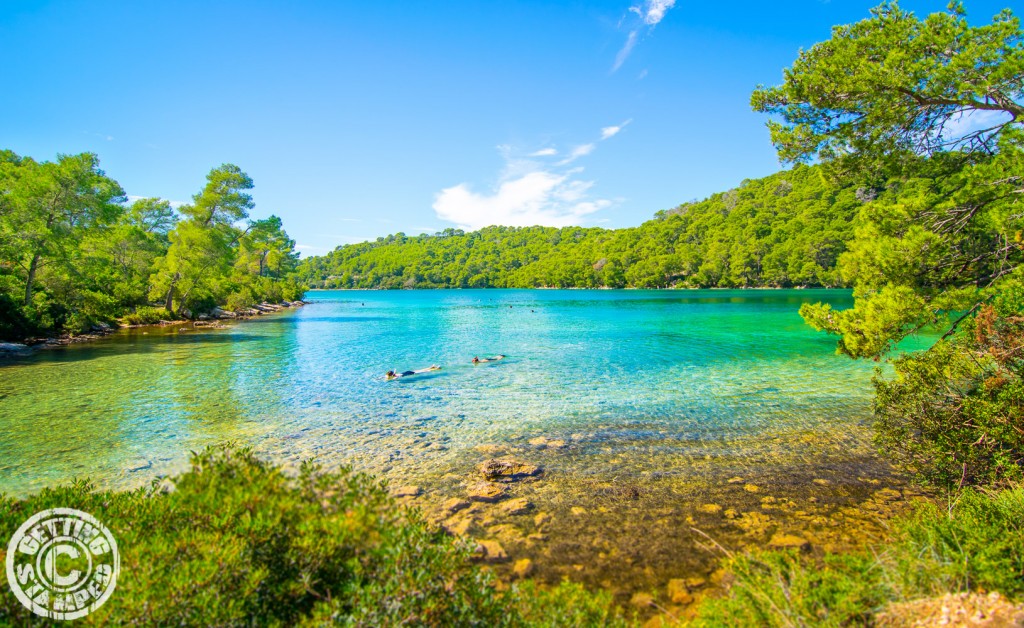
In the middle of the long second lake sits an island. Included in the park entrance fee of 90 kunas ($15) is a boat ride out to the small island.
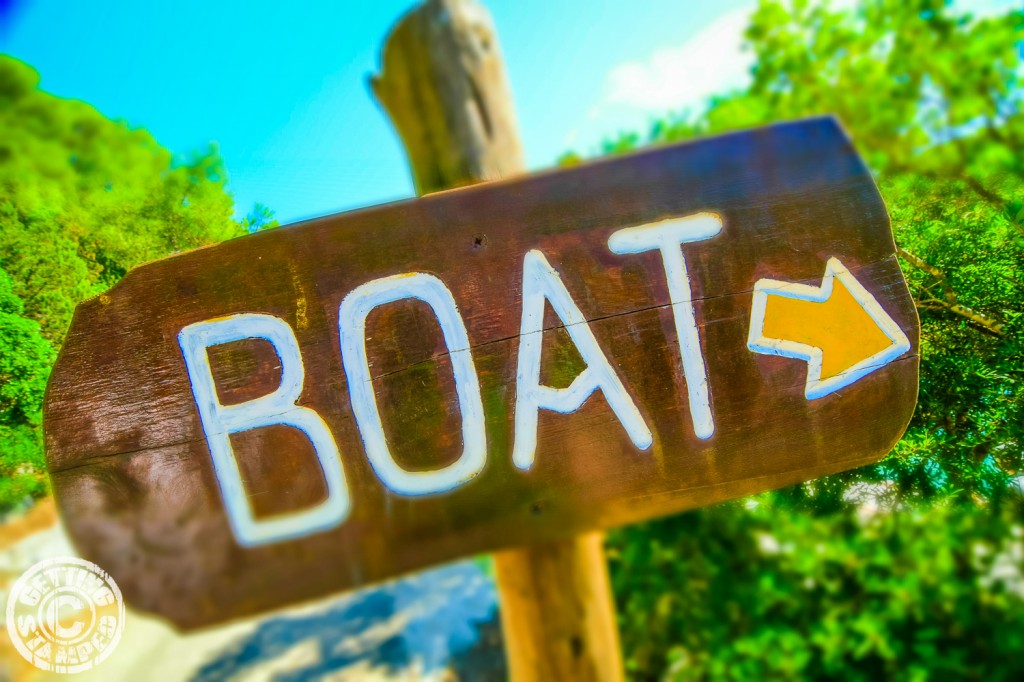
The island is home to small Monastery of Saint Mary. Once home to monks it now houses a restaurant and gift shop, and a small chapel. Most residence no longer live on the island, but not all have left.
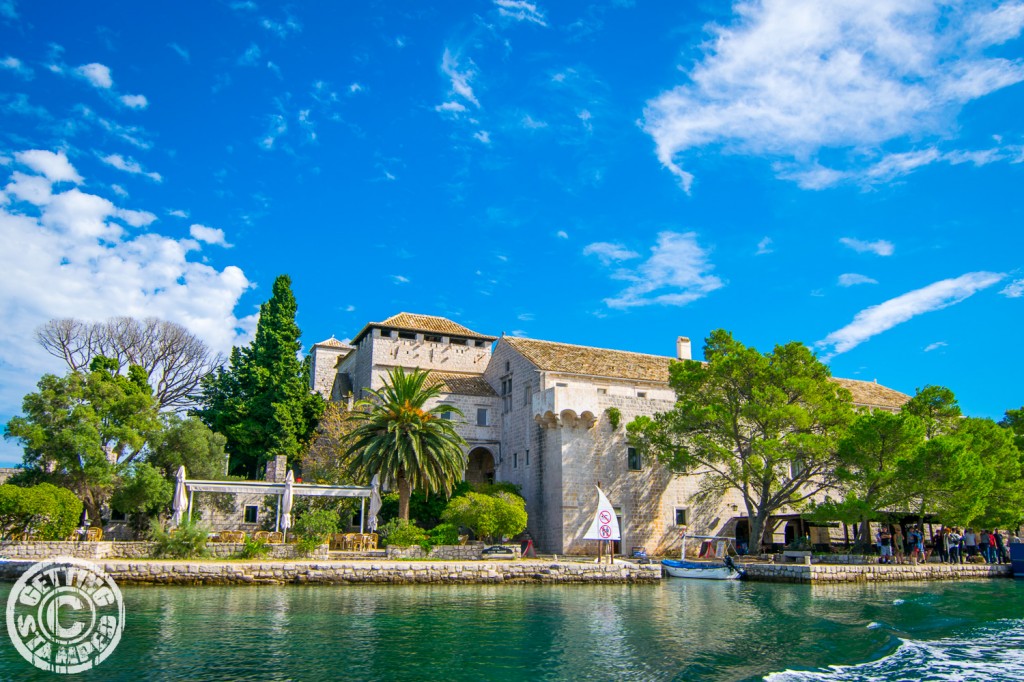
Mother and son Melita still call the island home. We spent our last bit of time on the island hanging out with these furry donkeys. There was a tourist-funded snack box to feed a few treats to the donkeys.
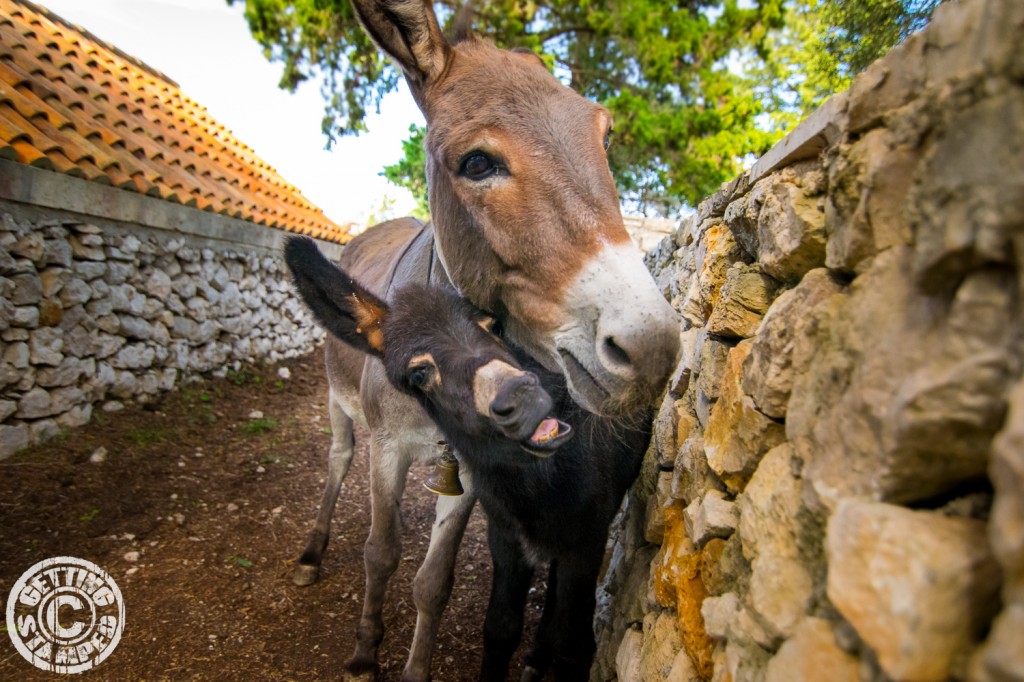
After leaving our new friends on the island we headed back to shore. With the remainder of our afternoon, we hiked around the smaller lake. It took us about 45 minutes to make it all the way around. The views of the lake were nice and we didn’t see another person on the backside of the lake.
Slano, Croatia: Wine, Salt, & Ostyers
34 kilometers up the coast from the walled city of Dubrovnik lies the old city of Slano. Outside of Dubrovnik, the countryside is full of green hills covered in grapevines. Mixed in between the hills are bays where the sea stretches inland making perfect place to raise oysters.
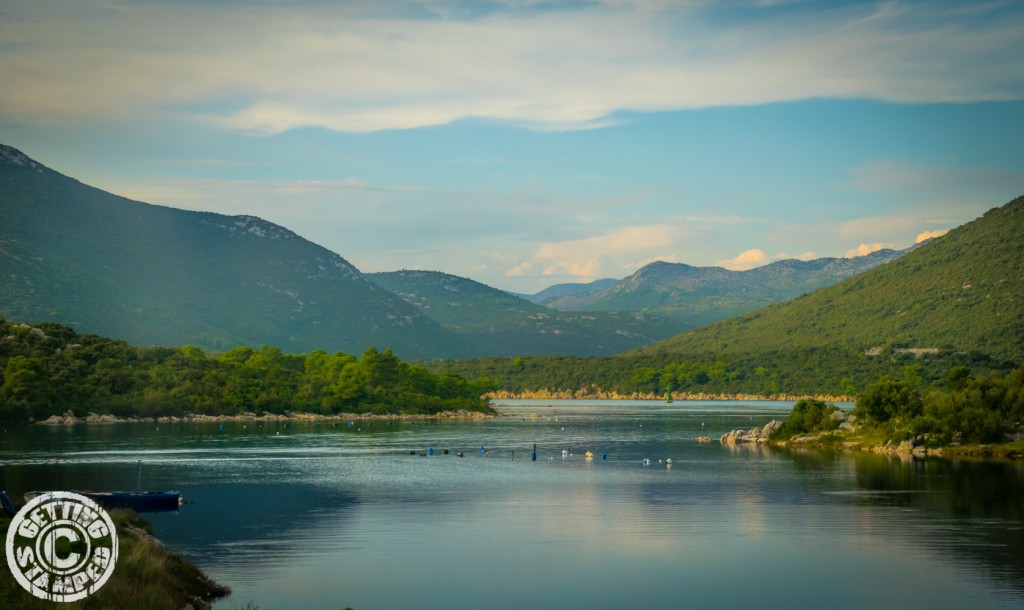
Grapes for wine have been grown here for more than 2000 years, but no one knows about the region’s wine. Communism stifled the wine industry over the past century preventing winemakers to make a mark on the world. Over the past decade, the has been a push to promote the traditional wines of the region. Most vineyards are small and family, we visited one as part of our day trip on our Croatia cruise.
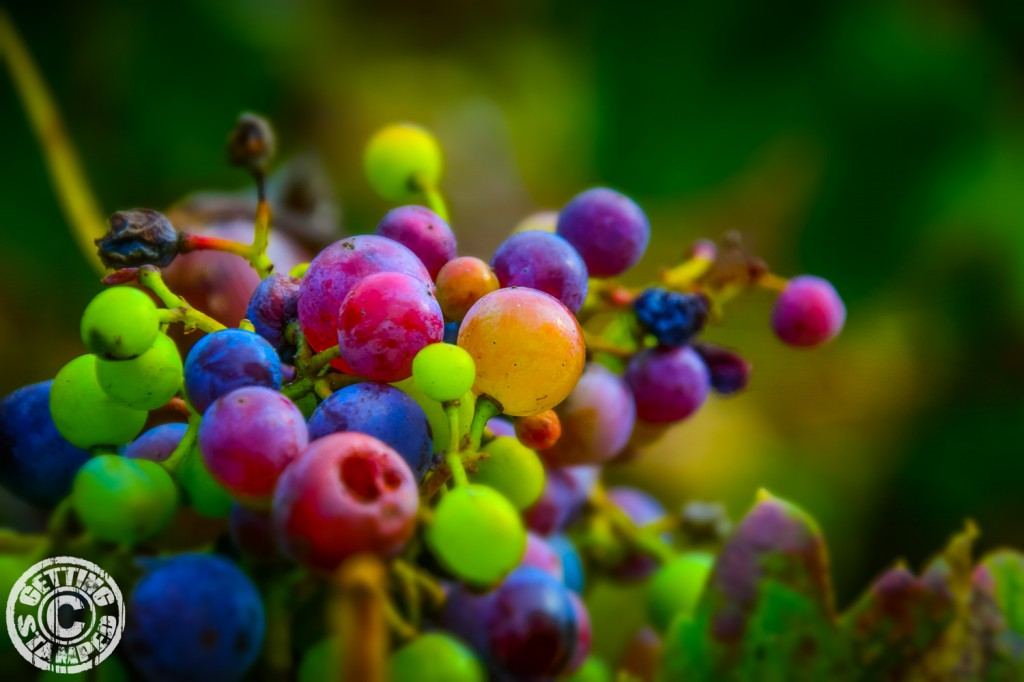
Our tour of the small winery began with something a bit stronger than wine. Brandy distilled from grapes is traditionally aged with local fruits to become a flavored liquor. Fruits like kiwi, cherry, walnut, and many more are soaked in the brandy for up to a year and the fruit imparts its flavor and color on the stronger spirit. The end result is a sweet but powerful sipping drink.
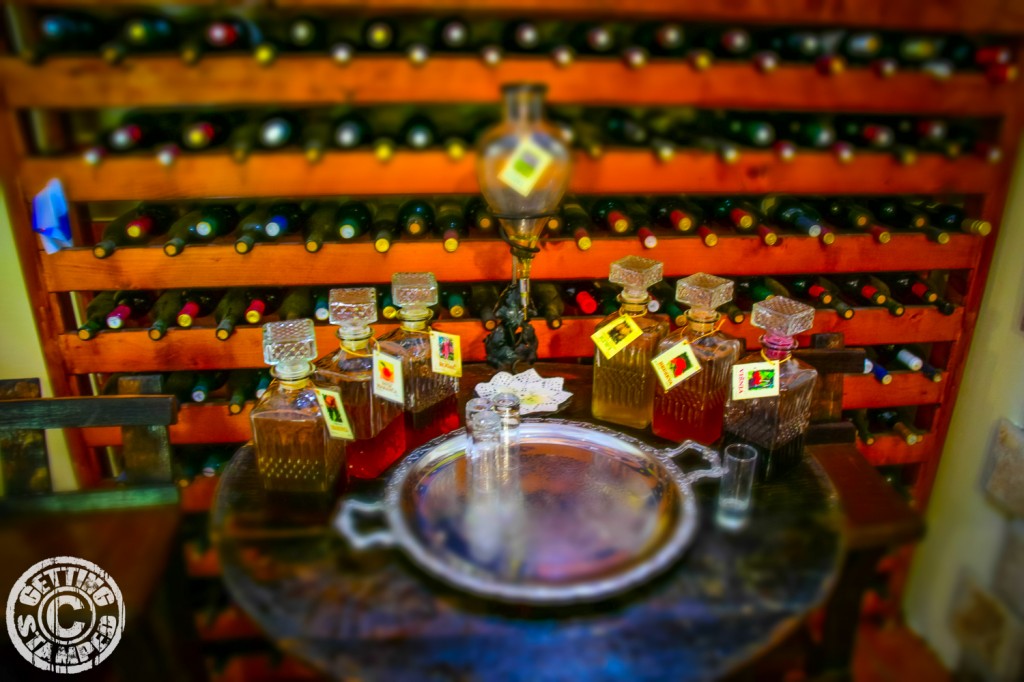
After our warm-up it was time for the wine. In our glasses today is a white, a rose, and two types of red. Our group favored the reds. Aged in oak for 2 years the wines picked up nice wooded flavors to compliment the complex fruit flavors. You could see the passion in our winemaker and guide for the day. He and other wineries are taking their wines seriously and starting to put out some good wine.
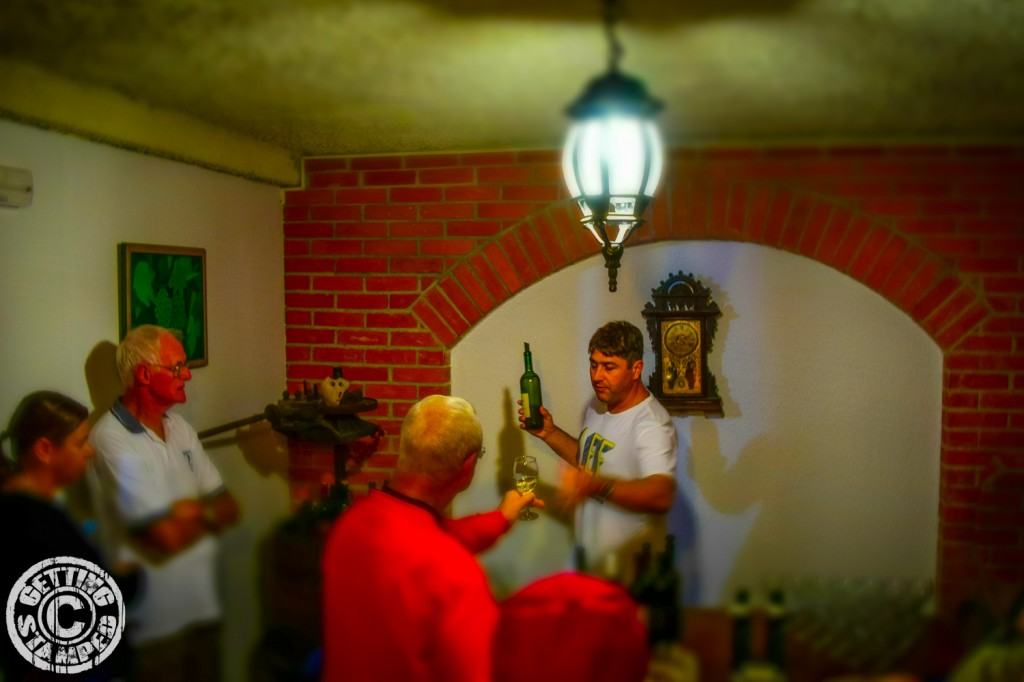
After sampling everything in the cellar it was off to another local specialty, salt. It may not seem that special today, but a few hundred years ago it was the only means of preserving food, and it was extremely valuable. So valuable the city of Slano had to build high walls to protect its valuable salt. At the time a pound of salt was worth as much as a pound of gold. Slano had developed a new way to get salt instead of mining it. They built large ponds to hold seawater and used the sun to evaporate the water leaving the salt behind. As impressive as that is this wasn’t the only thing they used the sea for.
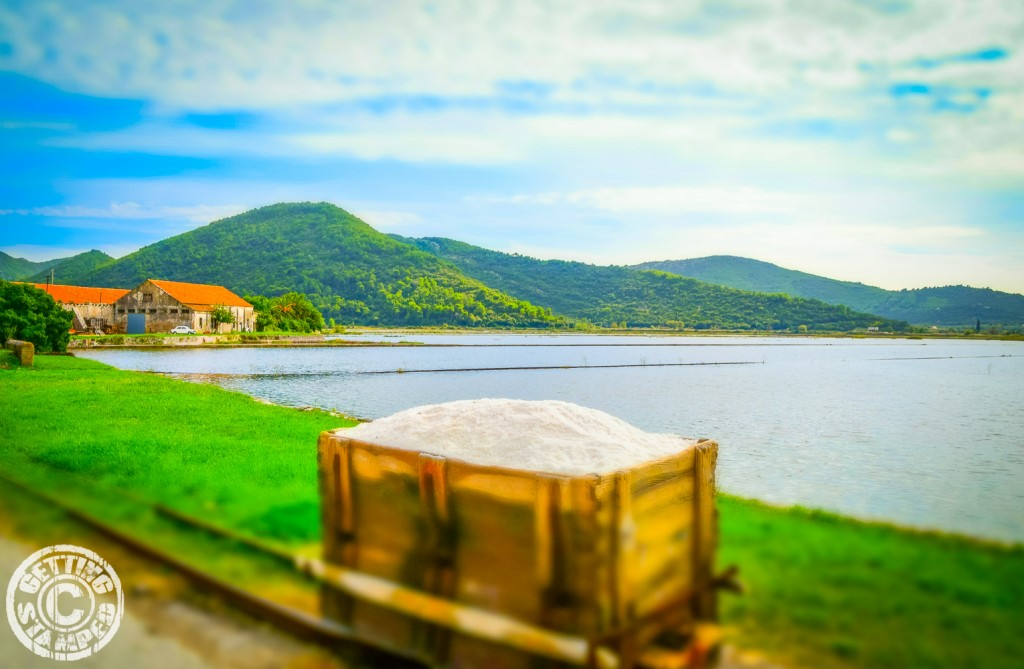
All across the bay’s in this part of Croatia are filled with bodies, stringing together ropes that are full of oysters. Oyster farming is another important local industry that we got to sample on our countryside tour. A plate of oysters and wine arrived at the table to finish our afternoon in the country.
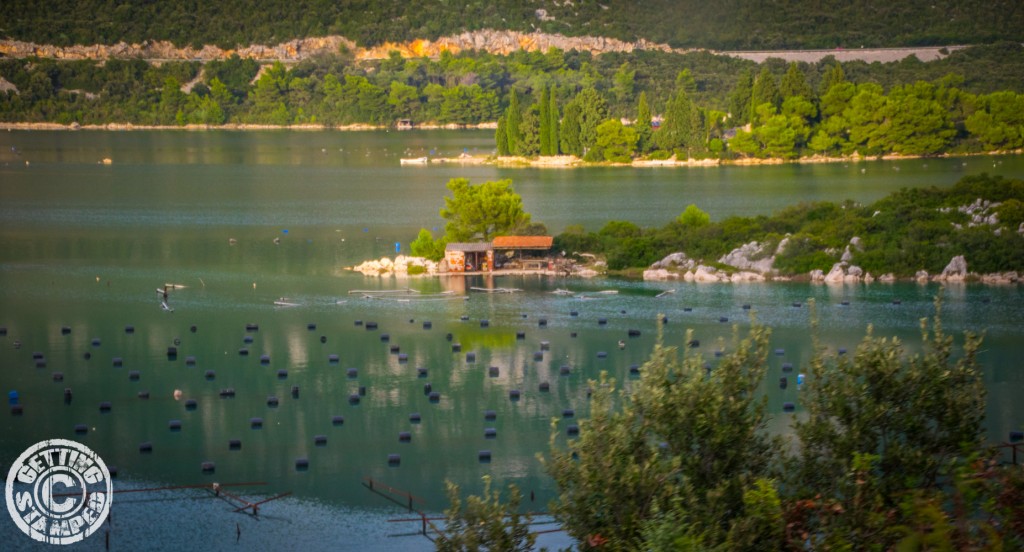
Hvar: One of Croatia’s best Islands
The town of Hvar is located off of Croatia’s coast on the island holding the same name. The island was first inhabited by Greeks in the 4th century. They chose to settle here because of the large plot of fertile land, which is rare for the islands in Croatia. The town itself didn’t come about until the Venetian times when they moved the capital to its current day location in the beautiful protected bay of Hvar. Until recently Hvar was much like most Croatian islands, peaceful, quiet, and naturally beautiful. Locals blame the Conde Nast travel magazine for naming their home as the top island in the world a few years back. The small island town now holds the distinction as being Croatia’s Party island.
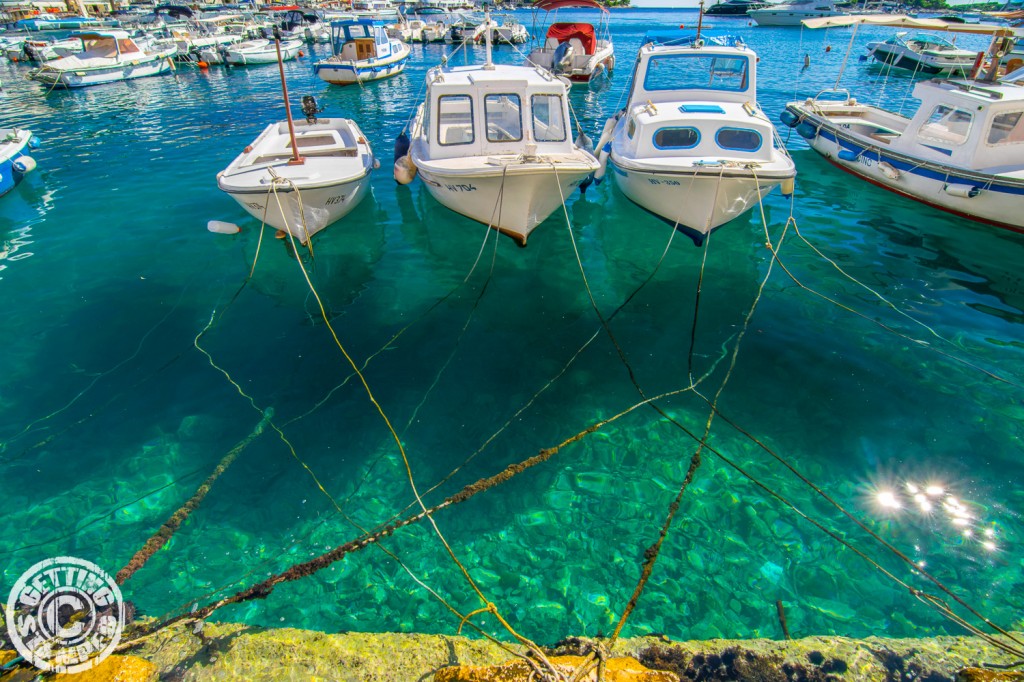
Back before the parties, the city had its roots, literally, in agriculture. Grapes, olives, lavender, rosemary, and other herbs are still grown on the island. However, lavender is the stand outcrop and has become what the island is known for. Throughout the town, you can find farmers selling lavender in just about any form. The most popular is the lavender oil used as a sedative and headache relief. Less popular, but more interesting, we found one ice cream vendor selling lavender flavored gelato. When in Rome… The flavor was much like the flower smells, resulting in an interesting floral flavor.
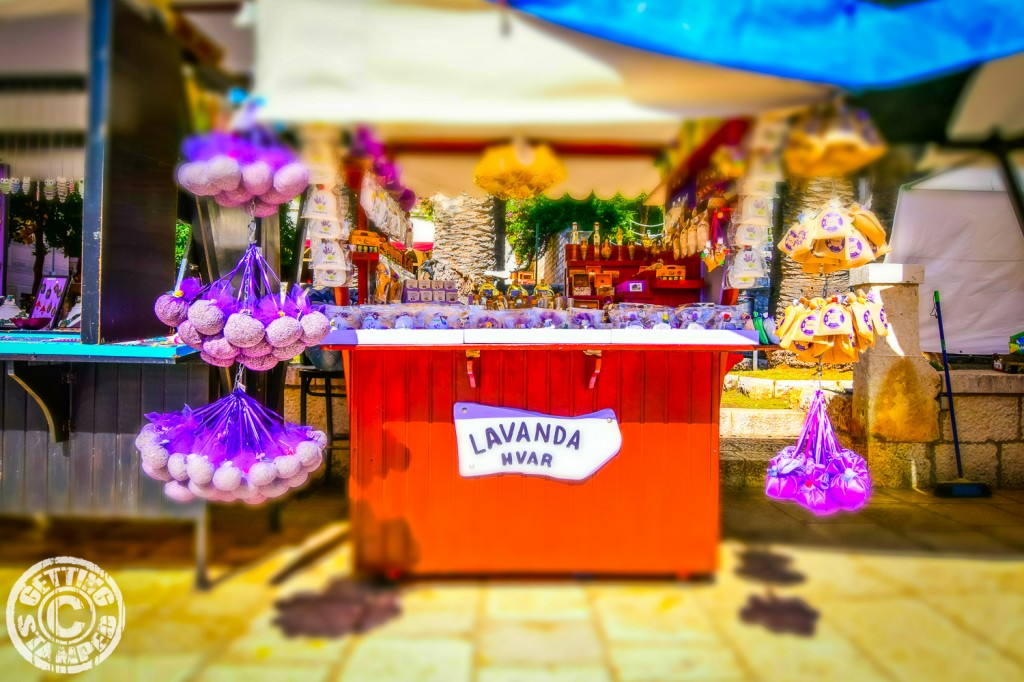
The city is said to hold the largest square in all of the Dalmatian islands with its centerpiece being the limestone construction church. We spent a few hours wandering the city down back alleys and side streets (all which seemed to lead back to the square). The square, as most things in the Croatian islands, is made completely out of limestone. The bright white stone makes for some great pictures with the sun above the church.
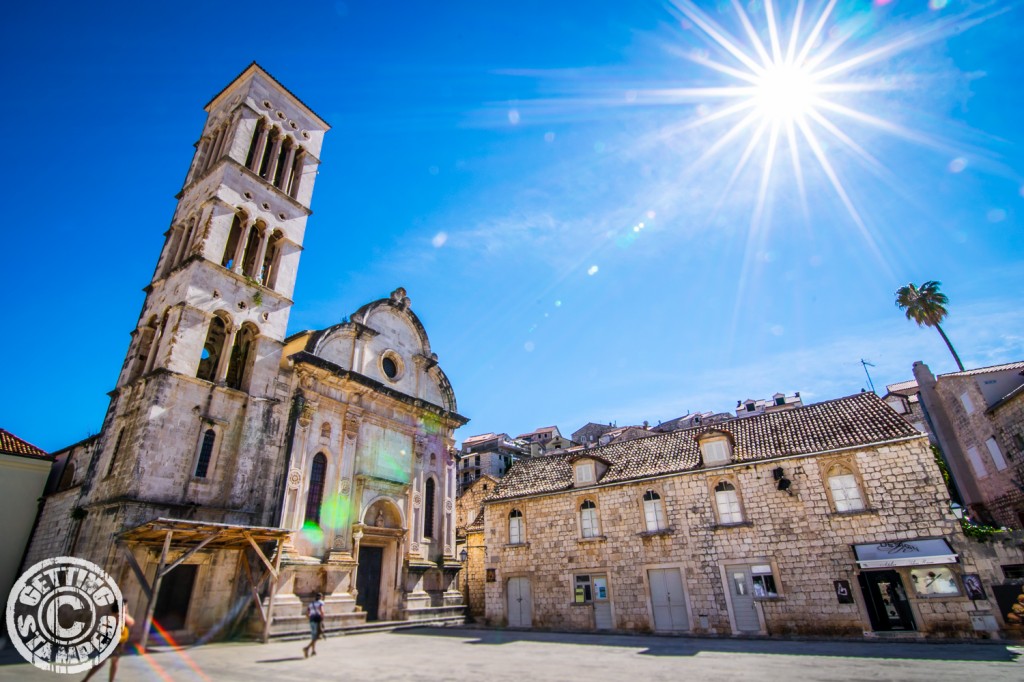
As beautiful as the square was it wasn’t the most intriguing thing in town for me. The real draw is the crystal clear bay. The same limestone that is used to make all the buildings around town is also all over the sea floor. The bright white sand and rock reflect the sun’s light and make the water look tropical. I could have spent half a day just taking pictures of the boats in the turquoise waters of the harbor.
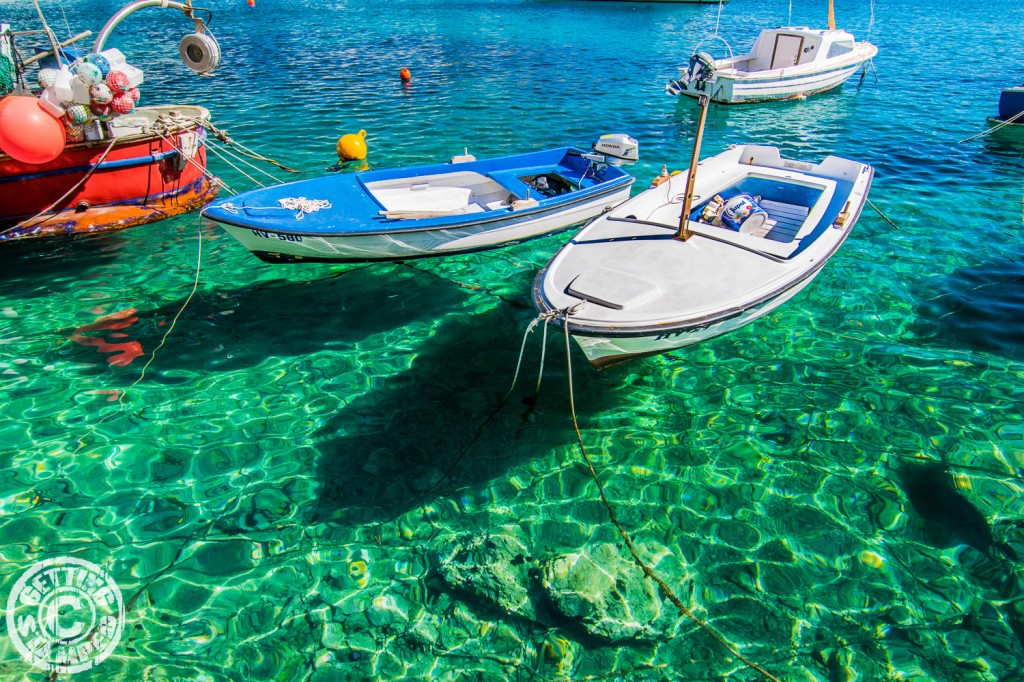
As the sun goes down the town comes to life. Restaurants and bars line the harbor, serving food and drink until late. Of all the places that our Croatia cruise went, this is the place I would have liked to stay even longer.
The Beautiful walled city of Dubrovnik
At the southernmost end of Croatia’s coastline sits a magical stone walled city. Dubrovnik was fortified with massive limestone walls to protect against the sea and would be invaders. Inside the walls, the city is full of buildings, all intricately carved from the same stone that lines the city. Between the structures lie narrow streets and alleyways filled with restaurants and pubs.
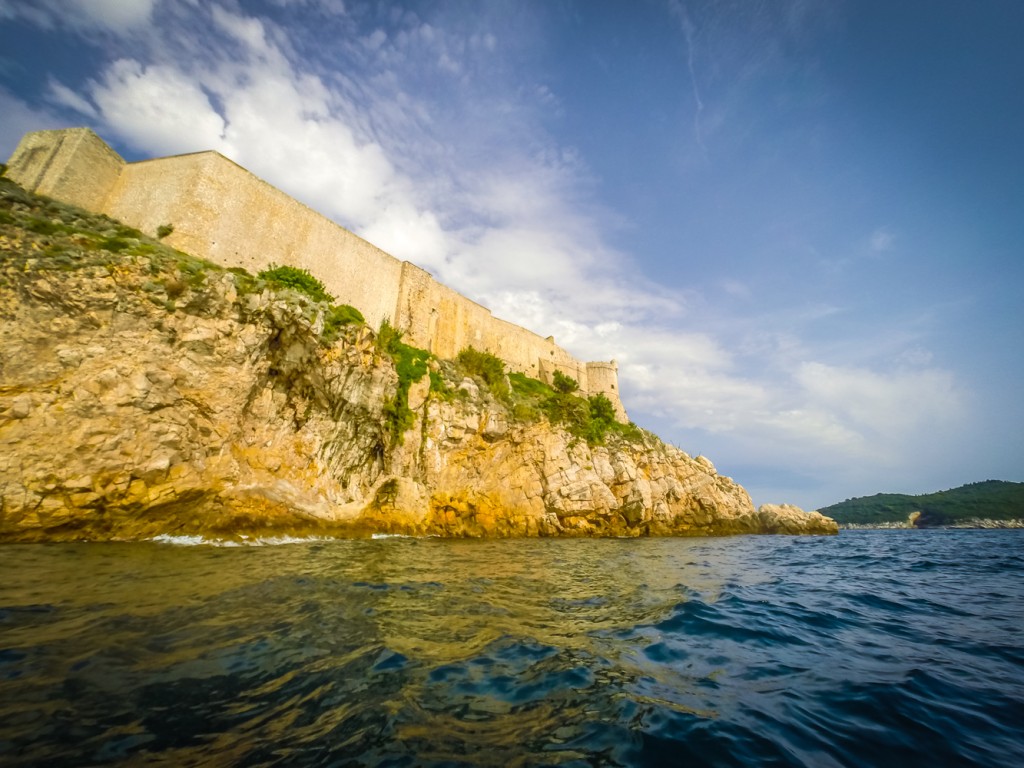
Around every corner seems to be another opportunity for a photo. I spend hours just wandering the lanes and back alleys of Dubrovnik, exploring and hiding from the other tour groups. Toward the old city’s edges stairs slow upward toward the walls giving great views of the buildings below.
No trip to Dubrovnik would be complete without a trip to the top of the city walls. For about 100 Kuna ($16.50) you can get up to the walking path around the city. The short mile or so course will take you longer than you’d expect mostly because of the frequent stops to take photographs.

Sunset in Dubrovnik was my favorite part of the day. The sinking sun fills the city with its last bits of light in beautiful yellows and oranges. This time of the day is also good because most of the tourist that came by cruise ship by day are back aboard and the city is less congested.
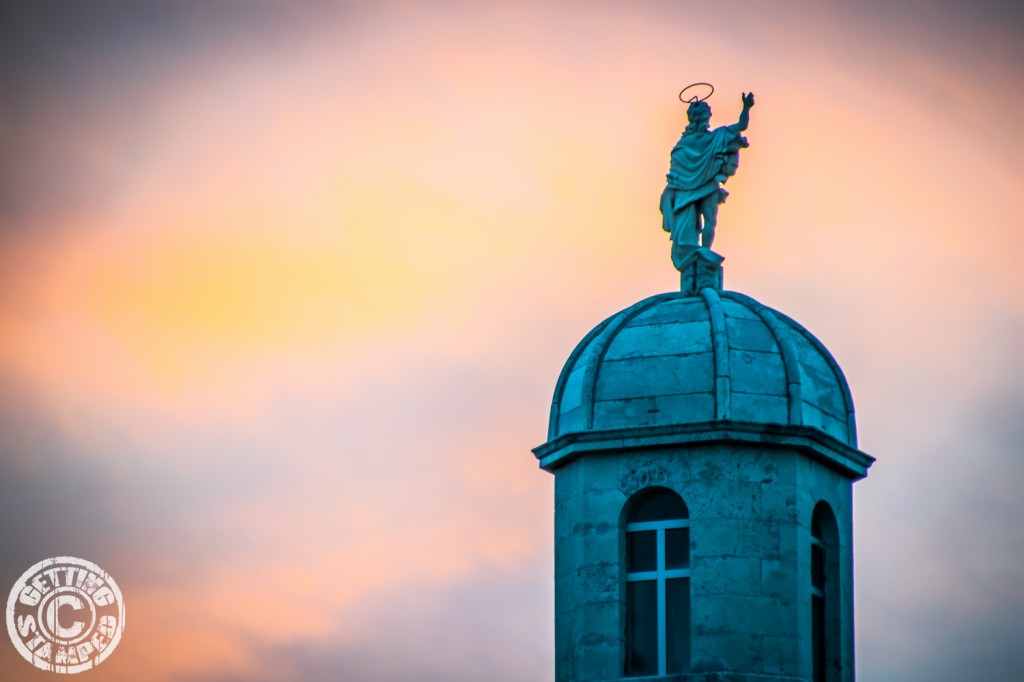
Over the past few years, the city has grown in popularity, especially during the summer months. If you enjoy history and beautiful architecture, head to Dubrovnik now. The area is packed activities, and flights to Dubrovnik are relatively inexpensive. If you’re at still not sold there is even more to southern Croatia.

The countryside around Dubrovnik is a great break from the busy city. Just a half hours drive from the city center you can reach several local wineries and try some unique wine. Round off your trip with a stop in the city of split, or one of the many Dalmatian islands, our favorite was Hvar. Either way, you can’t go wrong on the several hundred kilometers of Croatia’s coast.
